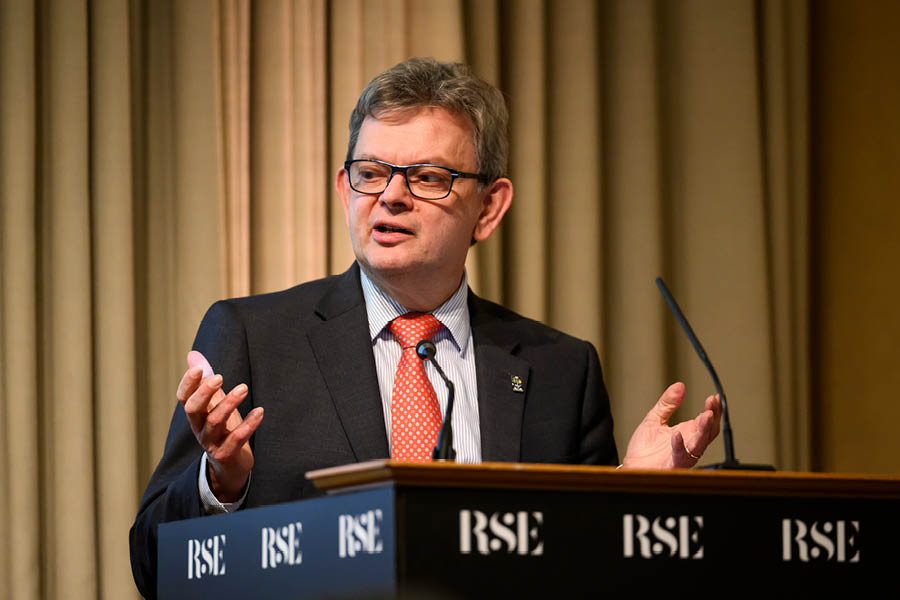Five things you need to know today
Public meeting in South Queensferry on Wednesday evening
On Wednesday night Scottish Liberal Democrat leader, Alex Cole Hamilton who is the MSP for Edinburgh Western – the area which includes South Queensferry is holding a second public meeting at Rosebery Hall on the High Street at 7pm.
The purpose is to update his constituents on any progress with dealing with so called boy racers who had in the summer been causing a nuisance to residents and business owners near the Hawes Pier.
He will no doubt explain his recent demand of the government to give the power to local authorities in Scotland to install and operate speed cameras in their areas.
A preliminary meeting was held in September, also called by the Liberal Democrat leader, and he promised then to convene a second before Christmas. Following the September meeting, Mr Cole-Hamilton raised the matter at First Minister’s Questions at Holyrood.
He took advantage of his single question to First Minister, John Swinney, demanding a national task force to address the issue which is said to happen all over the country.
Mr Cole-Hamilton said in parliament: “Presiding Officer, last night I chaired a packed town hall meeting in South Queensferry.
“For four years, my constituents have had their quality of life destroyed by hundreds of high performance, illegally modified cars and motorbikes racing around their beautiful town.
“The drivers of these vehicles will abuse and intimidate anyone who approaches them where they gather, in the car park at the foot of the iconic Forth Bridge. Pets have been killed, hotels have lost trade, nobody is getting any sleep.
“Residents like pensioner Andy Scott are really worried about road safety.
“In fact, just as our meeting was concluding, there was a collision right outside our venue with a motorcyclist rushed to hospital. Police are appealing for information about that.
“The racing and antisocial behaviour is happening in Inverness, parts of Glasgow, Crail, many other areas.
“Will the First Minister meet with me and agree to establish a national taskforce to establish and examine what more can be done to address this criminal behaviour that is blighting so many lives?”
The First Minister replied: “First, I am very sorry to hear of the circumstances in South Queensferry. It is a beautiful part of our country and an iconic location, and I am sorry that members of the public are experiencing what they are experiencing.
“The Government engages substantively on the question of road safety. The Cabinet Secretary for Transport has been briefing Cabinet on her concerns about road fatalities, which are a very serious and current problem, so that issue is very much on the Cabinet’s agenda. I am very happy to have discussions with Mr Cole-Hamilton on the subject and to determine what further action can be taken.
“The incident last night that Alex Cole-Hamilton raised will have involved police interaction, and I am sure that the police will have been involved in other instances of that kind. I am happy to host discussions to see what more can be done to address the situation.
“There may be some legislative issues that may be worth considering. I fear that some of those will not be within our areas of responsibility because they are road traffic issues, but I am happy to explore all possibilities.”
Mr Cole-Hamilton also raised the matter of anti-social behaviour in the Royal Burgh again just last month in Holyrood.
This is what he said then: “I thank all those members who are present for the debate, and all those who have signed the motion. In addition, I thank various national media outlets for their abundant interest in this story, which was—I think—sparked by the question that I asked of John Swinney at First Minister’s question time some weeks ago. I am also grateful to him for his offer of a meeting, which will take place tomorrow; I will say a bit more about that in my remarks.
“Before I get into the substance of the motion, I pay tribute to my constituents in the beautiful town of South Queensferry. It is a town that needs no introduction—it is an iconic United Nations Educational, Scientific and Cultural Organization world heritage site in the shadow of the three bridges that cross the Forth estuary. However, that community has been blighted, and those resilient and welcoming people are having their lives blighted, too.
“I make it clear from the outset that this is not an assault or an attack on young people or on motor enthusiasts, many of whom will go about their pastimes in a law-abiding way. I think back to when I was 16; my best friend was something of a petrolhead and owned a Honda 50cc. We would tinker around with it in his garage and use it to ride around the fields behind his house. The fastest that we could get it to go was about 30mph—I still have the scar tissue from the falls that I took, and the parental rebuke is still ringing in my ears.
“I understand, therefore, the thrill of acceleration and the draw of any type of engine. However, there is a massive difference between having an interest in cars or bikes, and what is currently going on in many parts of Scotland, nowhere more so than in the town of South Queensferry in my constituency.
“For four years, my constituents have had their quality of life destroyed by hundreds of high-performance cars and motorbikes, some of which have been illegally modified, racing around their beautiful town. The drivers of those vehicles will congregate from all parts of Scotland, and some will even abuse, intimidate and harass anyone who dares to approach them to complain. That is happening in the car park at the foot of the iconic Forth bridge—a UNESCO world heritage site.
“The drivers will often gather and honk their horns throughout the night to assert their presence. They will perform wheel spins in a stationary position, until the whole area is drenched in acrid tyre smoke, before racing off on a circuit that takes in most of the town. The doctored braking systems and exhausts mean that everyone can hear the machine-gun effect of the backfires all over town. Pets have been killed, and hotels have lost trade because their customers cannot sleep—in fact, nobody is getting any sleep.
“In September, I chaired a packed town-hall meeting in Queensferry, where I brought together high-ranking officials from the council, other elected representatives and the new chief inspector of police in Edinburgh’s north-west locality. I am very grateful for their continued interest and activity around the issue. Most importantly, we gathered together to hear about the lived experience of my constituents.
“I say that the meeting was packed—it was absolutely rammed. It was standing room only, and people who arrived slightly late had to turn away because they could not get into the building. These people are practically on their knees from the exhaustion and misery that has been caused by this antisocial racing, which is why I chose to raise the issue with the First Minister in the chamber the very next day.
“I am glad that, since attention has been brought to the issue in South Queensferry, the problem has abated for some time, but there are signs that it is picking up again, so we need solutions. One such solution, which I am calling on the Government to adopt, feels like an easy win.
“Unlike councils in England, Scottish local authorities do not have the power to install and operate speed cameras in their areas; that is currently the preserve of the police. The Scottish Parliament could, with some speed, change the law to allow councils to have that power. At a stroke, that would allow the City of Edinburgh Council to install cameras along the length of the Queensferry racing circuit. Not only would the fines that would be accrued from the cameras pay for their installation and upkeep; those cameras would generate additional revenue that could be invested in additional road-safety measures.
“We also need a dedicated, named police operation in South Queensferry. I was reflecting earlier on the success of operation Soteria, which—perhaps eight years ago now—successfully curtailed illegal motorbike racing in the north-west of Edinburgh, in particular around Muirhouse and Drylaw. The operation addressed that racing by bringing together, through the stronger north initiative that existed at the time, interested stakeholders such as youth work professionals, elected members and community councillors, until we had created a fabric of intervention that completely addressed the issue.”
After a couple of interventions he said: “I pay tribute to the efforts of the police in my locality, because they do their best to respond to the neighbours. Often, however, when they approach antisocial drivers, those drivers are on their best behaviour and are trying not to exhibit, in any way, behaviour that would involve any kind of offence that can be actioned. We need, therefore, to be proactive and preventative in dealing with the situation.
“Before I finish, I want to recognise that the hard work of the police and of local authorities in tackling such behaviour, in particular antisocial driving, is on-going. This behaviour is not happening in isolation—I was not the first person to identify it, and it would be wrong to suggest otherwise. I also applaud the silent crime campaign for its work in raising awareness of these issues.
“Nevertheless, it is clear that we need to change our approach if we are to win the battle. That starts with cross-party work and a national task force, and with preventative solutions, some of which we will—I hope—hear about tonight.”
As before it is expected that council officers from the transport department, councillors and community councillors, Police Scotland and any interested members of the public will attend.
[The Edinburgh Reporter may take issue with Mr Cole-Hamilton over his praise of national media for their coverage of this issue – we believe that we broke the story first and others followed.. ]
King Creosote at the Usher Hall
If you are quick you might get the last few tickets for King Creosote who is playing the Usher Hall in a postponed gig on 23 December. There are scattered seats available.
The Fifer, Kenny Anderson, known as King Creosote will play tracks from his lates full length album I DES, which is the first release for seven years.
He was supposed to play last month but had to stop the gig due to problems with the sound system. Tickets here.
(And if that is not your bag then Phill Cunningham’s Christmas Songbook is on at Queen’s Hall – with just a few tickets left for dates from 19 to 22 December.)
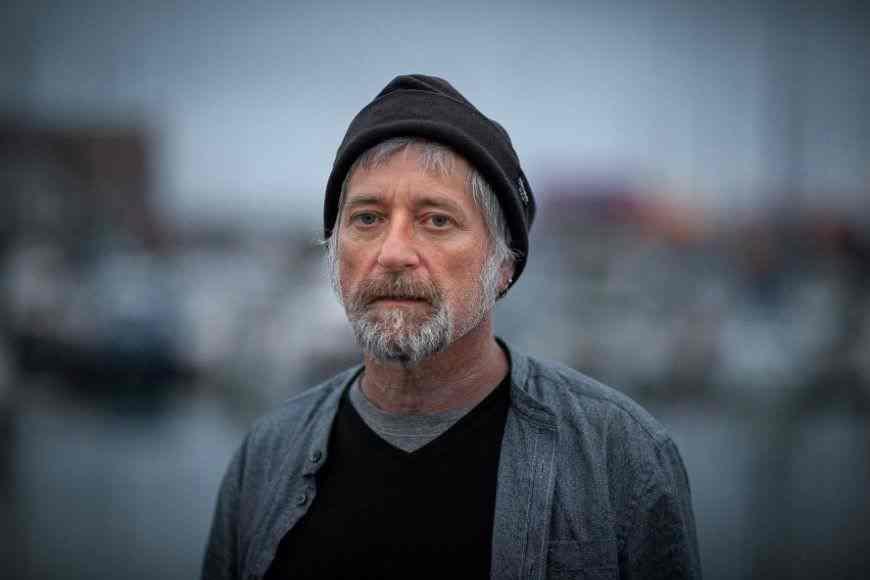
The Men of Leith Men’s Shed
This is one way to avoid social isolation and get involved. This organisation which operates from the Heart of Newhaven Community is now in its eighth year, and runs workshop activities including the music group, repair shed, cycling group, and the lunch shed. The men’s shed group says that “Research proves that men who connect with other men in the community live happier healthier lives”.
If you are interested in finding out about membership then phone 0751 077 2359 or there are other contact details here.
Looking for a last minute gift?
Buy a subscription to The Edinburgh Reporter for a gift that lasts all year long. The recipient will be sent twelve copies of our monthly newspaper which is created from scratch each month.
Or you could buy one for yourself…see our 2024 papers below – click on any of the top six images to read these issues in full.
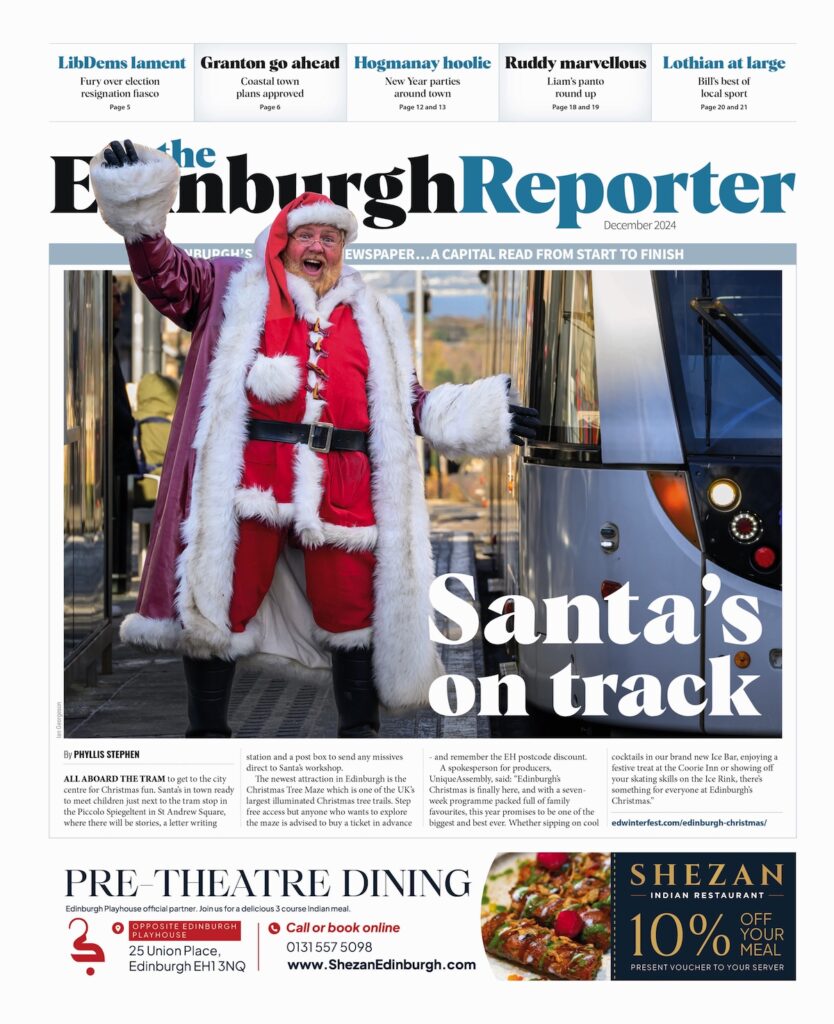
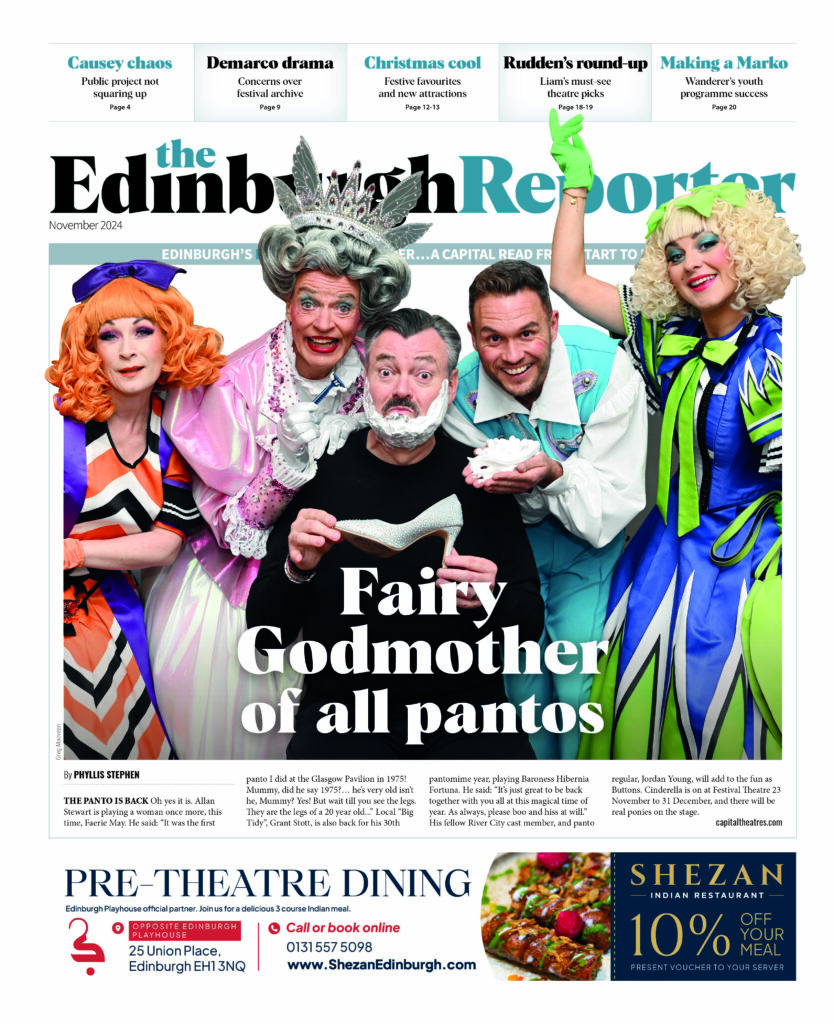
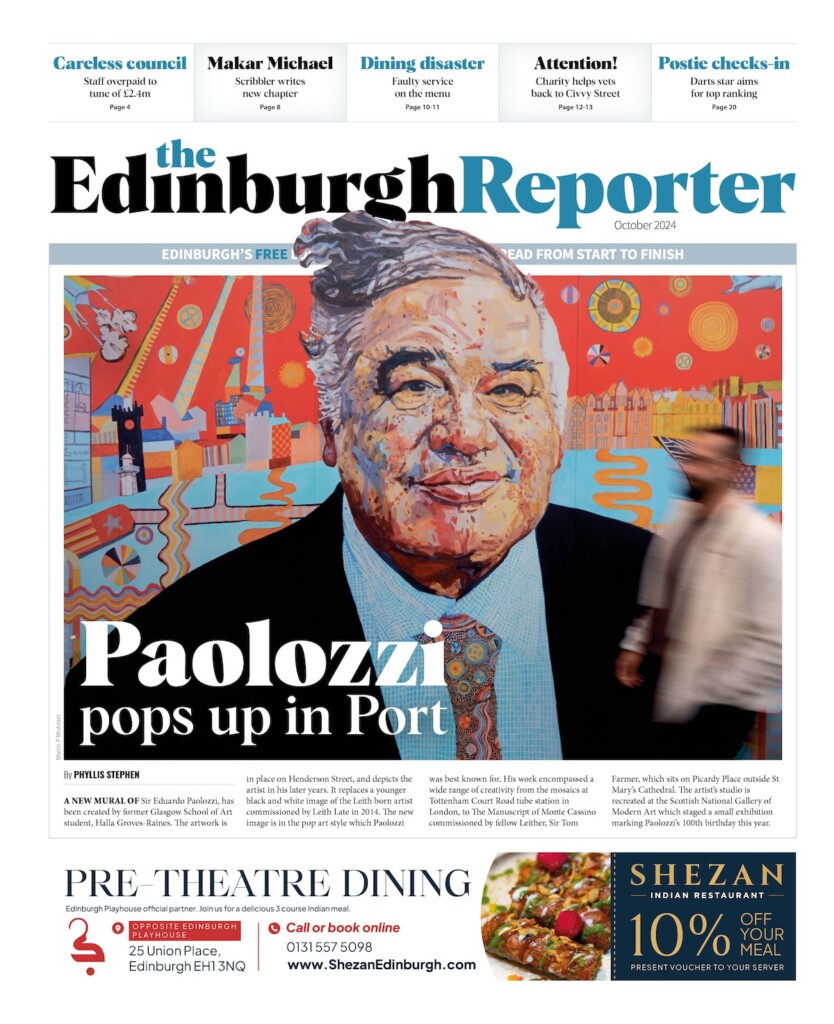
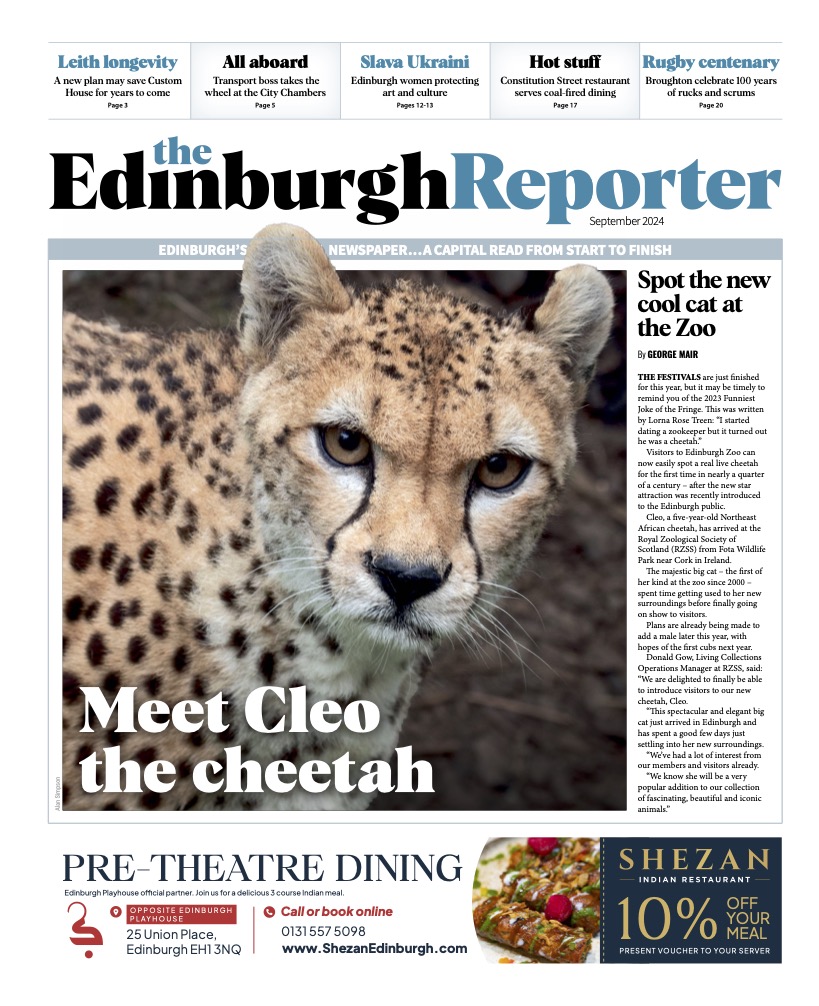
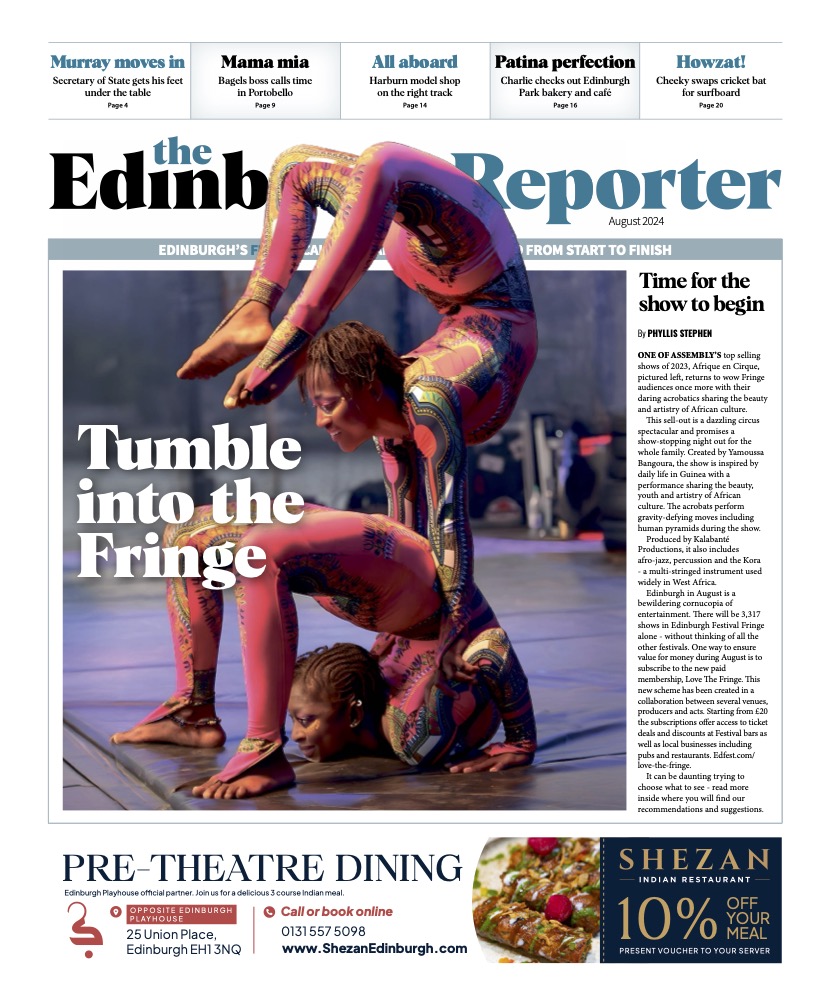
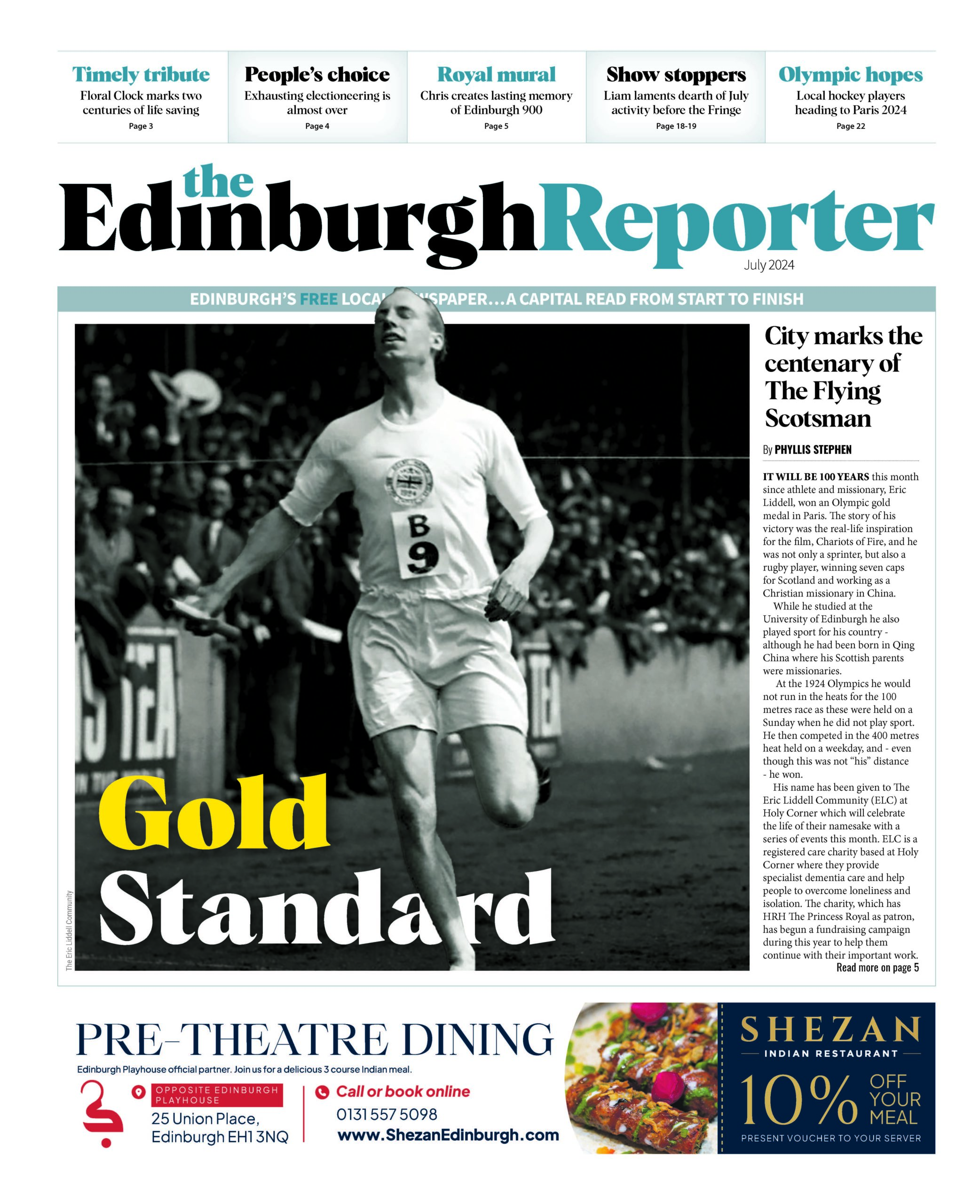
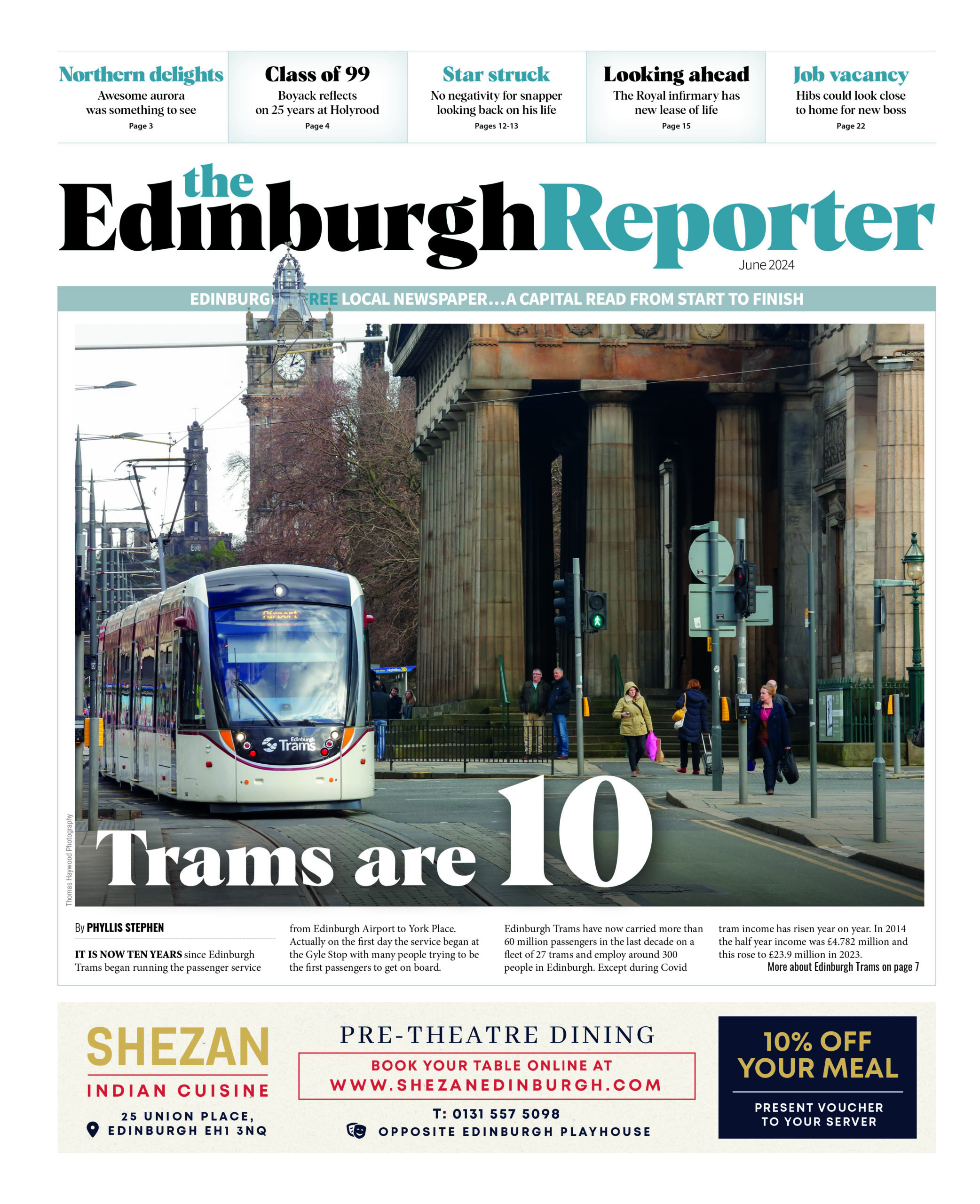
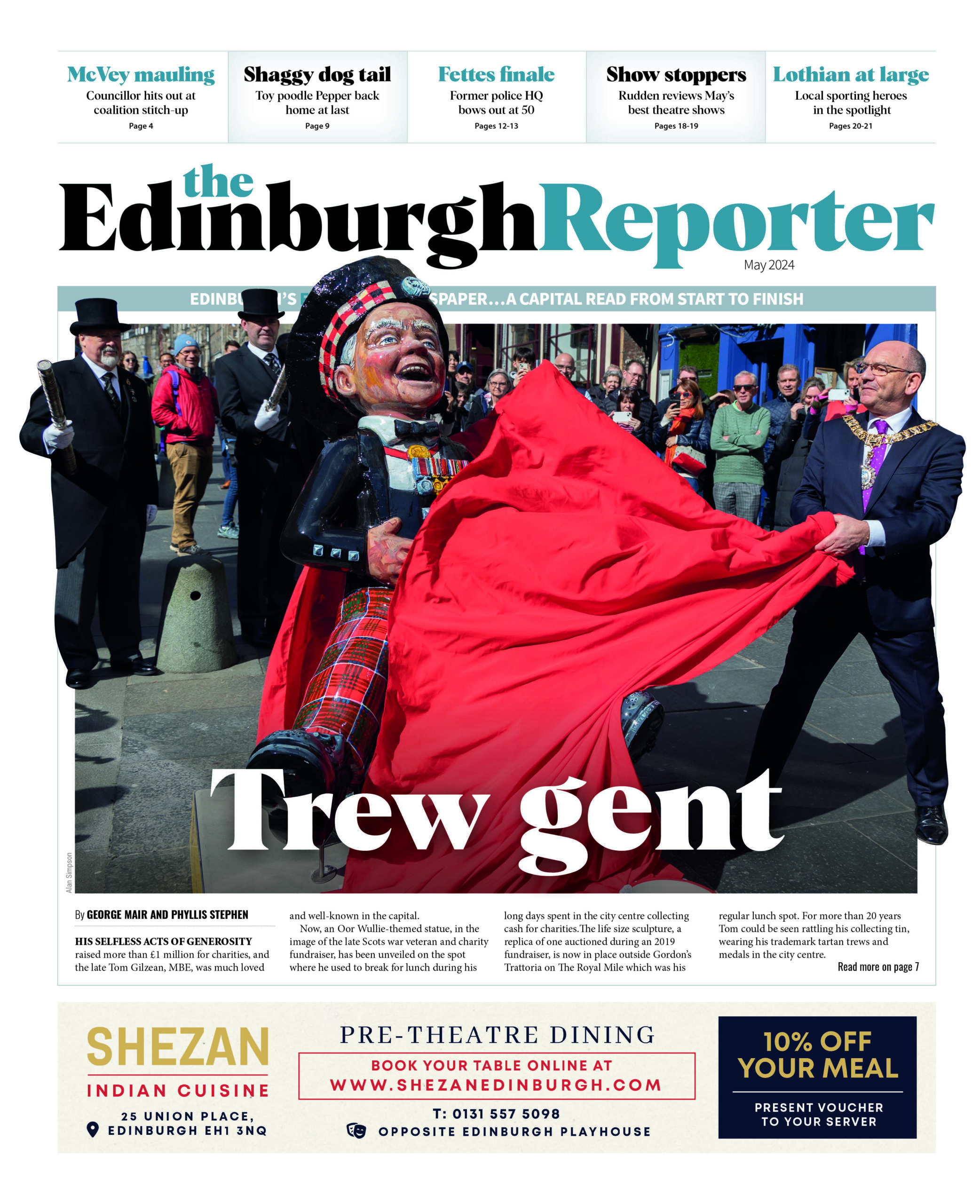
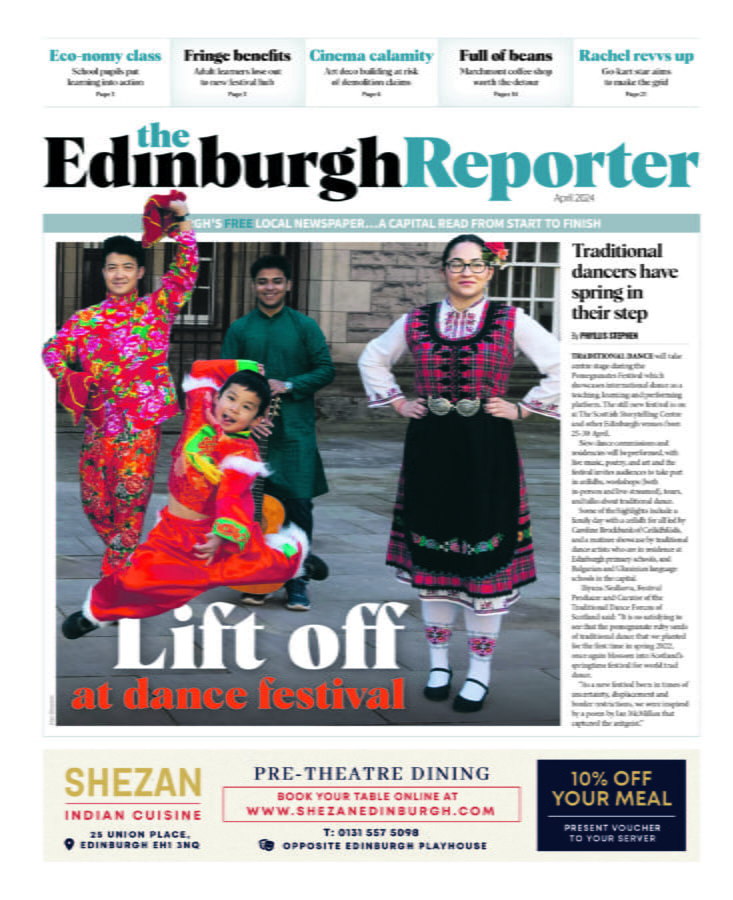

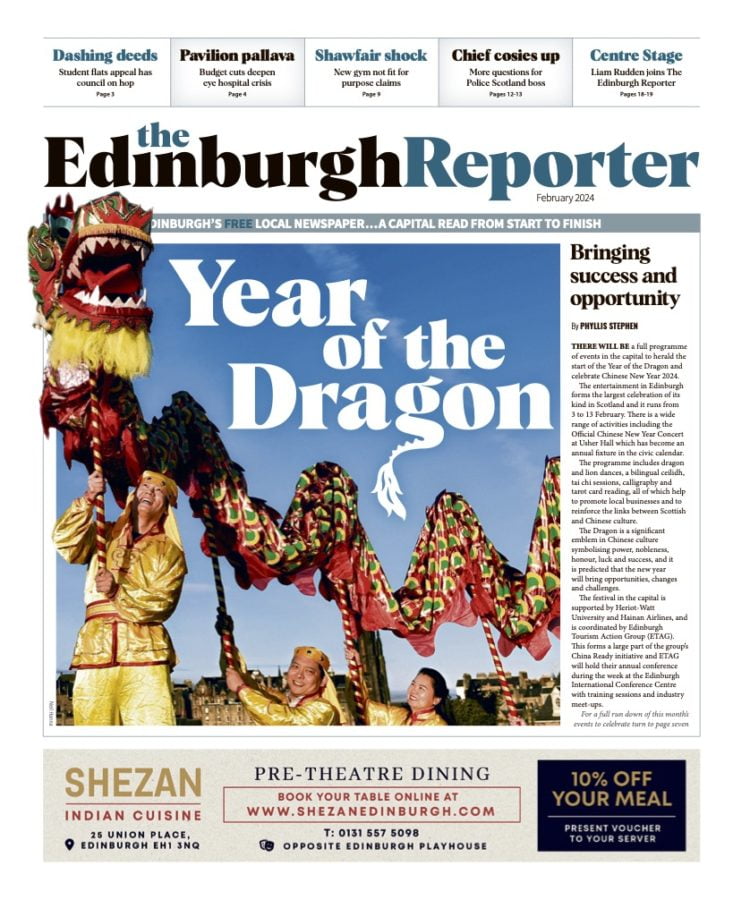
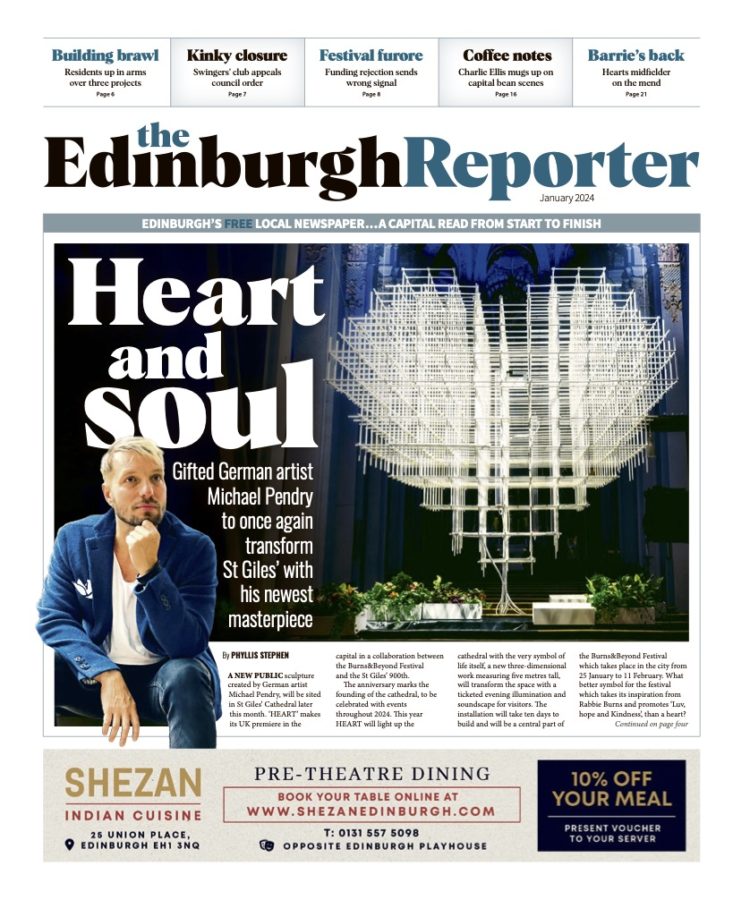
New President appointed at Royal Society of Edinburgh
Sir Anton Muscatelli has been appointed to the prestigious role of President of the Royal Society of Edinburgh (RSE).
He will take over on 1 April next year, and has previously been Principal and Vice Chancellor of the University of Glasgow. His research areas cover monetary economics, central banking, fiscal policy and international trade and finance. He has been a special adviser to the House of Commons Treasury Select Committee on fiscal and monetary policy, and he is currently the Chair of Trustees of the Royal Economic Society and Academic co-Chair of the International Finance Forum.
Sir Anton is Italian born, and he was elected as a Fellow of the RSE in 2003. He is the first Fellow to be elected President to have been born outside the UK.
Other notable Italian Fellows of the RSE include Charles Piazzi Smyth, astronomer and pioneer of early photography; geneticist Guido Pontecorvo; Manhattan Project member Enrico Fermi and Alessandro Volta, the inventor of the electric battery – from whom the term “voltage” is derived.
Sir Anton said: “It is an honour to be elected as President of the RSE. I greatly admire the institution and its mission, and the responsibility of leading it is one I take very seriously.
“Whether through its policy advice work or serving as a forum for having vital conversations about difficult subjects, the RSE has a key role to play in the future of Scotland.
“Through helping Scotland’s academic landscape to thrive through ongoing research funding, or its public engagement work with its Curious festival of knowledge, the RSE is ideally placed to be a benefit to all Scots, and I am relishing the opportunity to be a part of that noble endeavour.”
The role of President of the RSE is a pivotal one. As Scotland’s National Academy, the RSE supports Scotland’s research and academic community and civic society. This is achieved through public engagement, utilising the expertise of its many Fellows to draw up policy advice papers on various aspects of public life, and awarding funding to a wide range of academic researchers.
As President, Sir Anton will have responsibility for ensuring that the RSE continues to direct its resources towards these aims, as well as being a public voice for the RSE as a whole.
